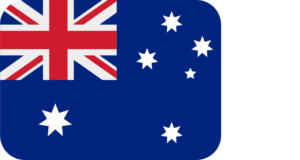Equity market returns were broadly weaker in August, with markets fluctuating over the month in response to rising bond yields, concerns of an economic slowdown in China and the potential impact of ‘higher-for-longer’ global interest rates, delivered solid returns. These were lifted by stronger than anticipated economic data and softer inflation numbers. Resilient economic activity and signs that major banks are slowing the pace of rate increases, and possibly reaching the peak, have supported investor hopes for a ‘soft’ economic landing.

United States
In the US, economic data remains solid, even though equity markets were lower, with a strong job market and unemployment remaining low at 3.5%.

Europe
Equity markets in Europe delivered negative returns, with the MSCI Europe Index (in local currency) returning -2.7%. Most geographies were generally weaker, although the Danish Index performed strongly, supported by robust returns for Novo Nordisk, the maker of weight loss medication, Ozempic.

China
The performance of the Chinese equity market was particularly weak in August, with the MSCI China Index returning -8.3%. Markets appear concerned about the risks of a slowdown in economic activity in China, drive by ongoing weakness in consumer confidence, weak household spending and a general slowdown in global trade.

Emerging markets
The MSCI World ex-Australia Index (hedged into Australian Dollars (AUD)) returned -1.8% for the month. Unhedged returns were stronger, returning 1.6%. Unhedged International equities outperformed hedged equities over the previous year due to continued weakness in the AUD. The return for the MSCI Emerging Markets Index was also negative, returning -2.3%, driven primarily by the performance of Chinese equities. South Korea and Taiwan, which are also heavily weighted in the Emerging Markets Index, were both weaker, returning -4.2% and -3.1% respectively.

Australia
The S&P/ASX 300 returned -0.8% for the month. Returns were lower across most capitalisations, with the MidCap-50 and Small Ordinaries Index also producing negative returns. Consumer Discretionary was the best performing sector, returning 5.8% for August, while most other sectors delivered negative returns. The weakest performances were in utilities (-3.9%) and Consumer Staples (-3.1%). In contrast to the broader market, the Australian Listed Property Index (AREITs) was stronger for the month, returning 2.2%.

Currency and Bonds
The AUD was generally weaker against the currencies of most major trading partners. The AUD weakened -3.9% against the US Dollar and has been trending lower in recent months, driven partly, by a weakening outlook for the Chinese economy, softer commodity prices and a wide differential between US and Australian interest rates.
Developed Market bond yields were little changed in August, despite market volatility, with the 10-Year Australian Government Bond yield falling marginally by 2 basis points to 4.03%. The US 10-Year yield rose 14 basis points to finish August at 4.09%. Yields on major developed market government bonds do however remain close to recent highs across a range of geographies.

